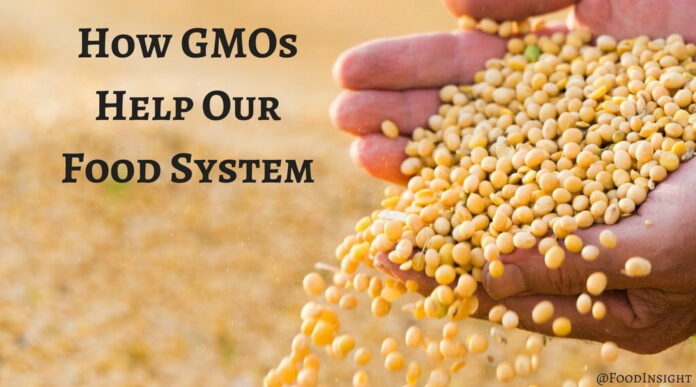Since 1996, Genetic Food Modification Technology has increased yearly. According to a report, GM plants have been planted on 191.7 million hectares, or 12% of the world’s arable land, in 2018.
Agriculture’s fastest-growing sector is the biotech plant boom. While the majority of those plants are used as animal feed and biofuels. They are also immediately incorporated into the majority of processed foods purchased in the Americas and Asia.
One of the main advantages that supporters of Genetic Food Modification Technology reduce world hunger. However, the generation no longer holds promise for the security of the world’s food supply.
Aspects of GM Meals Revolution
The driving factors for GMOs are cost, profitability, and crop yield. Flavr-Savr Tomato, the first GMO meal, reduced the cost of supplying canned tomato merchandise by approximately 20%. While several researchers established financial benefits for farmers developing GMO plants.
The primary marketed gain for salmon is faster boom prices, which result in less expensive fish manufacturing. AquaBounty will be the first genetically modified (GM) animal approved for human consumption.
Plants and animals become more resistant to disease as a result of genetically engineered developments. In a variety of conditions, they ripen longer and develop more potently. GM is also effective at lowering costs and providing financial benefits to customers and businesses.
Monsanto, DuPont, and Syngenta are among the largest agricultural companies that produce GM plants. Opportunities abound for smaller biotech startups such as AquaBounty and Arctic Apples.

GM Plants Will Feed More People
The growth of genetically modified food is being accompanied by decreased costs, increased crop yields, increased earnings, and more business opportunities. The logical next step would be to use genetically altered food to combat food insecurity. The benefits of using GM plants to reduce world hunger are numerous, but there is also a strong anti-GMO movement.
Recent research findings have shown that the idea of curing starvation with genetically altered plants no longer functions as expected. The countries that stand to gain the most from gene generation also stand to lose the most.
Genetic Food Modification Technology Will Assist in Ending Global Starvation
The biggest beneficiaries of GM plants have been large agricultural organizations, farmers, and meal producers. The income incentive has genuinely assisted in advancing the generation’s development.
Some might even assert that this is how things are supposed to work, with capitalism driving innovation. However, income-driven initiatives no longer completely ignore the chance. That this generation can also be used to benefit society as a whole by lowering global starvation.
The fact remains that Genetic Food Modification Technology engineering is a useful tool for improving meal production. There is no easier way to produce unique useful traits in animals and plants. And as we learn more about approximate genetics, more changes become feasible.
Financial Motivation Will Be Much Needed
There is no doubt about whether or not Genetic Food Modification Technology engineering should be used to improve food plants. Gene modification is already a tool in crop development.
The real question is whether, in addition to assisting in making more people wealthy in industrialized areas. This revolutionary generation will provide a way to alleviate hunger within the world’s poorest areas. gender. It is feasible to launch numerous discount programs and supply coupons such as Whole Foods Discounts for Employees, and PeachDish coupon code on FindCouponHere to humans while shopping for those genetically modified meals to help them save money.
Adopting this generation to successfully address global hunger issues would necessitate the participation and coordination of numerous corporations, political entities, and social agencies. The benefits of eating genetically modified foods will outweigh any economic gains or losses.
Politics Involvement in Research and Distribution
There are numerous reasons for the opposition to the adoption of GMOs in the arena.
Much of the GM generation’s inability to provide a remedy to the poorest countries appears to have less to do with the generation and more to do with social and political issues. Many of the world’s poorest countries, which have been hardest hit by starvation, have enacted strict policies that prohibit the production and import of genetically modified foods and plants.
Much of this opposition appears to have been influenced by agencies from the past. There is still competition in the adoption of GMOs, but rising starvation rates around the world are influencing humans to change their minds. Member states of the European Union can decide whether or not to carry out the generation.
The lack of knowledge about the long-term effects of genetically modified foods has led many to believe that humans should no longer consume them. This appears to be the most valuable of all the reasons for resisting a feed alternate.
Resistance due to social stress and political positioning has led starvation research agencies to focus on growing plants and farming strategies to avoid genetically modified plants.
However, anti-GMO sentiment isn’t always the most obvious reason why the generation isn’t always benefiting from the poorest countries. Commercially, the most important crop improvement agencies. In particular, use Genetic Food Modification Technology to improve the most valuable large plants, such as corn, and cotton.
Less funding has been allocated to plants such as cassava, sorghum, and millet. These are better suited for cultivation in poorer countries. The financial incentive to grow GM plants that could help poor farmers in one-third of the world’s countries may be very small.
Final Words
The article above contains useful information about Genetic Food Modification Technology. Hopefully, genetically modified foods will one day aid in the abolition of world hunger.
Read more articles on travellinground

